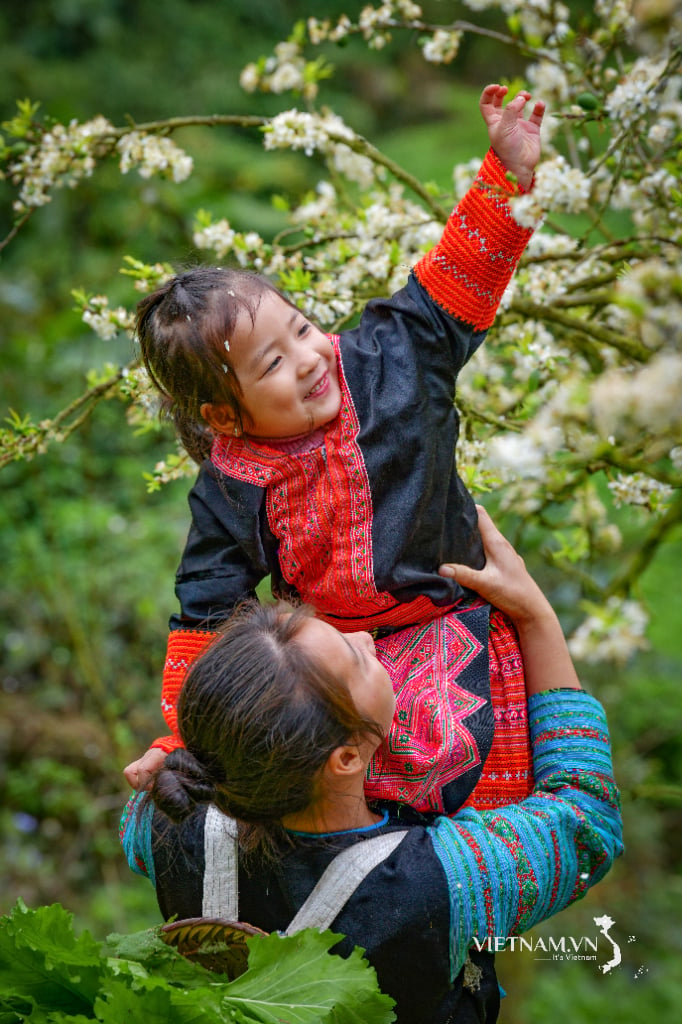The key to sustainable development of Vietnam's agricultural sector.
A presentation by the Department of Cooperative Economics and Rural Development - Ministry of Agriculture and Environment at the Forum "National Cooperatives 2025 on Green Production Transformation for Sustainable Development" showed that many cooperative models have proactively and successfully transformed, such as Hoa Loc General Agricultural Service Cooperative (Ben Tre), which has built a model for organic rambutan production, applying a cultivation process that does not use chemicals, replacing them with organic and microbial fertilizers, helping the product achieve organic certification from the US (USDA) and Europe (EU Organic), exporting to the Netherlands and Canada with a value 20-30% higher than conventional products.
For example, Tan Binh Cooperative (Dong Thap) produces rice using green methods, recycling rice straw by-products into organic growing media, or Bich Thao Coffee Cooperative (Son La) applies closed-loop processing, greenhouse drying, achieves OCOP 5-star standard and exports 97% of its production to demanding markets such as Germany, the US, and Japan… Approximately 70% of agricultural cooperatives in the pilot raw material area have applied at least one form of digital technology .
Mr. Tran Thanh Dung, Chairman of the Kien Giang Provincial Cooperative Union, stated that many sectors and localities have developed programs and plans to innovate, develop, and improve the efficiency of the collective economy, achieving positive results in various fields. The system of policies and laws supporting the collective economy is being developed and gradually perfected. In the context of international integration, climate change, epidemics, and especially the rise of the Fourth Industrial Revolution, digital transformation in agriculture is an inevitable trend and a "key" to the sustainable development of Vietnam's agricultural sector.
In its forum discussions, the State Bank of Vietnam's report showed that, in recent times, closely adhering to the Party's guidelines and resolutions, and the State's laws on the collective economy and cooperatives, the State Bank of Vietnam has identified the collective economy in general and cooperatives in particular as one of the priority areas for credit investment by the banking sector. It has directed the implementation of many solutions to expand credit and support the development of cooperatives in general and the transformation of production towards sustainability in particular.
 |
| Cooperative societies need to develop and implement effective production and business plans, focusing on improving the efficiency of capital utilization. |
The State Bank of Vietnam (SBV) has finalized regulations and guidelines on green banking and green credit, aligning with green growth and sustainable development goals. Many preferential monetary and credit mechanisms and policies target cooperatives operating in both agricultural and non-agricultural sectors, such as: regulations on unsecured loans ranging from VND 100 million to VND 3 billion depending on the target group (individuals, households, cooperatives, and cooperative unions); unsecured loans up to 70% - 80% of the value of agricultural production and business plans applying high technology, or agricultural production based on linkage models and value chains, to encourage and support customers in developing sustainable agricultural production. Simultaneously, there are specific debt handling policies in cases where customers face risks due to objective reasons, force majeure, or widespread natural disasters and epidemics (debt restructuring while maintaining the same debt classification; debt freezing). The policy involves reducing lending interest rates by at least 0.2% per year compared to the interest rates of similar loans with corresponding terms when customers purchase agricultural insurance.
In parallel, the State Bank of Vietnam has directed credit institutions to implement solutions to remove difficulties in accessing capital for cooperatives. These include simplifying loan procedures, being flexible in applying loan guarantee mechanisms, diversifying credit programs and products suitable to the specific characteristics of cooperatives; promoting the implementation of bank-enterprise connection programs in provinces and cities; and organizing specialized credit conferences, including those for the cooperative sector, to promptly identify and resolve difficulties and obstacles in accessing bank credit.
As of the end of January 2025, 35 credit institutions participated in lending to cooperatives and cooperative unions, with outstanding loans reaching VND 6,428 billion. Besides the outstanding loans to cooperatives and cooperative unions mentioned above, credit institutions also lend to individuals and households who are members of cooperatives to meet their production needs. Therefore, the credit provided by the banking sector to support the production and business activities of cooperatives may be significantly higher, in the form of loans to individual cooperative members. According to statistics from the State Bank of Vietnam, by the end of January 2025, outstanding loans to individuals and households engaged in production and business activities in the agricultural and rural sector amounted to VND 2.51 trillion, accounting for 68.03% of the total outstanding agricultural and rural loans.
A coordinated effort is needed.
However, credit to cooperatives remains low, accounting for a small proportion of the total outstanding loans in the economy. This situation exists not only in the lending activities of the banking system but also in the lending activities of the Cooperative Support Fund system from the central to local levels.
The reasons are that many agricultural cooperatives have a small scale of production and business operations, a limited scope of activity, and lack effective production and business plans; these cooperatives are not yet capable of organizing and coordinating large-scale, synchronized production activities (replacing small-scale production by individual households) to be able to apply green farming methods.
In addition, most cooperatives currently face difficulties in accessing finance due to limitations in collateral, weak financial management capacity, unstable business performance, and a lack of good credit history.
These are the reasons that make it difficult for credit institutions to assess loan applications, failing to build trust in them when deciding to grant loans, especially unsecured loans. Furthermore, the legal status of collective economic entities also poses a challenge for credit institutions in determining the responsibility and debt obligations of these entities.
To promote capital support for the collective economy, the State Bank of Vietnam has been implementing key solutions to strengthen bank credit to support cooperatives in implementing green transformation and sustainable development.
Specifically, credit institutions are directed to immediately implement new credit policies serving agricultural and rural development after the Government issues a Decree amending and supplementing Decree No. 55/2015/ND-CP on credit policies serving agricultural and rural development, including new policies on increasing unsecured loan limits for cooperatives, and policies on lending for the development of circular economy and organic agriculture, in line with production requirements in the new situation.
At the same time, continue to direct the credit institution system to disburse loans for the implementation of the Project on 1 million hectares of high-quality, sustainable rice cultivation, and to implement production and business models along the low-emission rice value chain.
Implementing the banking sector's tasks in line with the National Strategy on Green Growth.
Continue directing credit institutions to balance capital and focus credit on cooperatives operating in priority sectors in accordance with the Government's policy; increase lending to new cooperative models that operate effectively, cooperatives participating in the development of strong products, production along value chains applying high technology, with high commercial value, and cooperatives that innovate and undergo digital transformation in accordance with the law.
To facilitate the banking sector's role in providing stronger support for the sustainable development of collective economic organizations and cooperatives, the State Bank of Vietnam requests that ministries, sectors, and localities effectively fulfill their state management roles regarding cooperatives, focusing on enhancing cooperatives' awareness of the necessity of transforming towards sustainable development.
The Prime Minister should soon issue a Decision on environmental criteria for investment projects eligible for green credit and green bond issuance, providing a basis for credit institutions to select, appraise, evaluate, and monitor when granting green credit. Simultaneously, priority should be given to allocating and integrating capital sources, especially those from the National Target Program for New Rural Development and the National Target Program for Socio-Economic Development in Ethnic Minority and Mountainous Regions, to implement preferential policies and support cooperatives; and the effectiveness of the Cooperative Support Fund in localities should be further enhanced, providing capital support and loan guarantees for cooperatives.
The State Bank of Vietnam also requested that the issuance of land use rights certificates and property ownership certificates be expedited, especially the issuance of property ownership certificates (greenhouses, net houses, etc.) for green agriculture and high-tech agriculture investments. It also called for shortening procedures for secured transactions and creating more favorable conditions for cooperatives and cooperative unions to access capital.
On the part of the cooperative, it is necessary to ensure that it meets all the conditions and requirements of a cooperative organization as stipulated in the 2024 Cooperative Law and its guiding documents. In particular, it must ensure that its operations are in line with the true nature of a cooperative; develop and implement effective production and business plans, focusing on improving the efficiency of capital utilization and increasing labor productivity as a basis for credit institutions to provide loans.Source: https://thoibaonganhang.vn/xanh-hoa-de-phat-trien-ben-vung-163310.html








































































































Comment (0)